It’s not easy to give your teen constructive criticism. They are at an age where they are trying to figure out who they are, and they don’t always want to hear what you have to say. But if you want to help them grow into responsible adults, it’s important to give them feedback that will help them improve. Here are some tips for giving your teen constructive criticism:
What Is Constructive Criticism?
It is important to give constructive criticism in a way that is respectful and helpful, rather than hurtful or judgmental. Constructive criticism is a form of feedback that is intended to help improve a person or situation. When giving constructive criticism, it is important to focus on specific areas that can be improved, and to offer specific suggestions for how to make those improvements.
Why Is It Important To Give Your Child Positive Criticism?
Second, it builds their self-esteem and confidence. It is important to give your child positive criticism for a number of reasons. Third, it motivates them to do better in the future. Finally, it shows them that you care about their development and want them to succeed. First, it helps them to understand what they did well and what they could improve upon.
How To Give Constructive Criticism
It can be difficult to know how to give your teen constructive criticism. Here are some tips for giving constructive criticism to your teen: You want to be able to help them improve, but you don’t want to hurt their feelings or make them feel like they’re not good enough.
1. Be specific. Next time, I suggest proofreading it before you submit it.” For example, instead of saying “This essay is a mess,” try “I noticed that you didn’t proofread your essay before you turned it in. When you’re critiquing your teen’s work, be specific about what you think could be improved.
Using negative words will only make your teen feel defensive and will not help them learn how to improve. 2. Avoid using negative words. Instead of saying “You’re doing it wrong,” try “Let’s try it this way.”
It’s important to remember that your teen is not their work. For example, instead of saying “You’re so lazy,” try “I noticed that you didn’t put much effort into this project.” 3. Critique the work, not the person. When you’re critiquing their work, avoid personal attacks.
For example, you could say “I know you can do better than this. Let your teen know that you think they have potential and that you believe in them. It’s important to be encouraging when you’re giving constructive criticism. 4. Be encouraging. I know you’re capable of great things.”
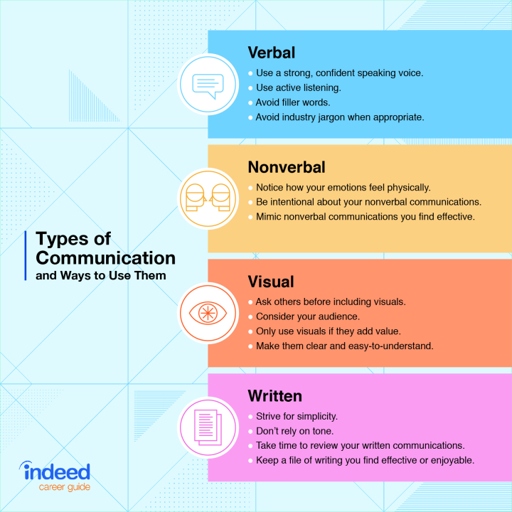
5. Help them come up with a plan. Once you’ve given your teen constructive criticism, help them come up with a plan for how to improve. For example, you could say “Let’s brainstorm some ideas for how you can proofread your essays before you turn them in.”
Be specific, avoid using negative words, critique the work, not the person, be encouraging, and help them come up with a plan. Giving constructive criticism can be difficult, but it’s important to remember that your goal is to help your teen improve.
Start With A Good Relationship
It is important to start with a good relationship when giving your teen constructive criticism. If you have a good relationship with your teen, they will be more likely to listen to what you have to say and be open to hearing your feedback. If you have a bad relationship with your teen, they may be more likely to shut down and not listen to what you have to say.
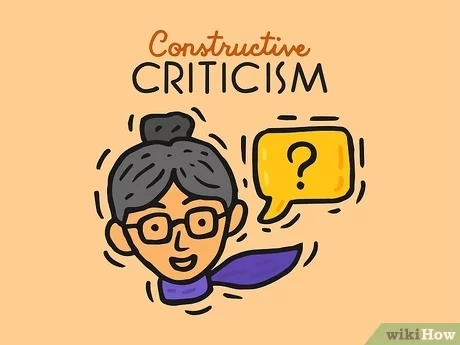
Here are some tips for giving your teen constructive criticism:
1. Critique their behavior, not them as a person.
2. Avoid using “you” statements. For example, instead of saying “You’re being lazy,” try “I noticed that you didn’t do the dishes today.”
3. Critique the behavior in a specific way. I was wondering if you could please do them tomorrow.” For example, “I noticed that you didn’t do the dishes today.
For example, instead of saying “You’re always lazy,” try “I noticed that you didn’t do the dishes today. 4. Avoid using generalizations. I was wondering if you could please do them tomorrow.”
I was wondering if you could please do them tomorrow. I really appreciate it when you help out around the house.” For example, “I noticed that you didn’t do the dishes today. 5. Critique the behavior in a positive way.
For example, instead of saying “You’re lazy,” try “I noticed that you didn’t do the dishes today. I was wondering if you could please do them tomorrow. 6. Avoid using negative words. I really appreciate it when you help out around the house.”
I was wondering if you could please do them tomorrow. Thank you.” For example, “I noticed that you didn’t do the dishes today. 7. Critique the behavior in a way that is respectful. I really appreciate it when you help out around the house.
Point Out The Positives As Well
Instead, focus on giving specific, actionable advice that will help them to improve. This will help them to see the areas where they need to improve, but also appreciate the areas in which they’re doing well. Try to avoid being too critical or negative, as this can discourage your teen and make them less likely to listen to your feedback. When it comes to giving your teen constructive criticism, it’s important to point out the positives as well.
Focus On The Behavior, Not The Person
Their behavior is something that they can change, but the person is not. When it comes to giving constructive criticism, it is important to focus on the behavior and not the person. This is because the person is not their behavior.
This can help them to be more open to hearing what you have to say and to changing their behavior. When you focus on the behavior, it allows the person to see that you are not attacking them, but rather their behavior.
It is also important to be specific when you are focusing on the behavior. This is because the more specific you are, the more likely it is that the person will understand what you are talking about and be able to change their behavior. Instead, you should say something like, “I noticed that you didn’t do the dishes this morning.” This means that you should not just say that the person is being lazy.
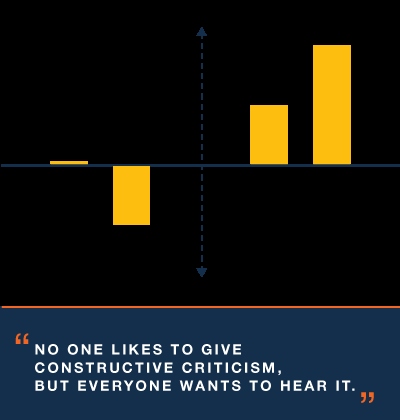
Finally, you should also be sure to give criticism in a way that is respectful. Instead, you should try to use phrases like, “I noticed that you didn’t do the dishes this morning and I was wondering if you could please do them in the future.” This means that you should not use put-downs or make the person feel bad about themselves.
By following these tips, you can give constructive criticism in a way that is more likely to be heard and to result in positive change.
Be Clear, But Gentle
Instead, try to be understanding and supportive. You don’t want to come across as judgmental or mean-spirited. It’s important to be clear when giving constructive criticism, but it’s also important to be gentle.
Here are some tips for giving constructive criticism to your teen:
1. Avoid using “you” statements. For example, instead of saying “You’re being lazy,” try “I noticed that you didn’t do your homework today.”
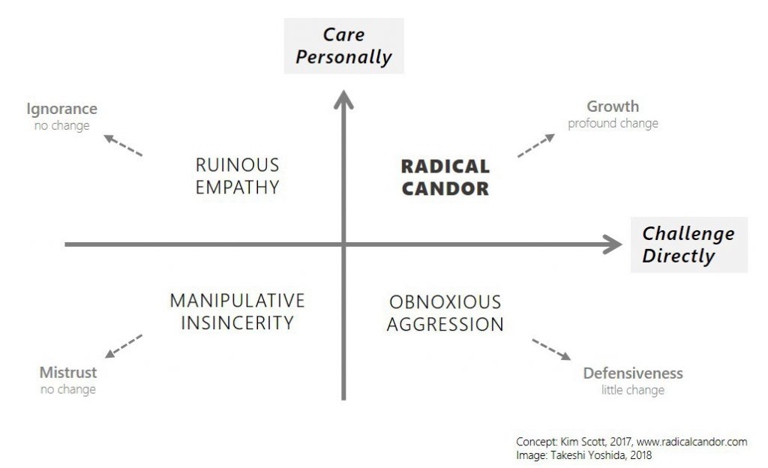
Instead of saying “You’re not doing your best,” try “I noticed that you didn’t put much effort into your essay.” 2. Be specific.
For example, instead of saying “You’re not trying hard enough,” try “I noticed that you’re having trouble with this task.” 3. Avoid making assumptions.
4. Be aware of your tone. Try to sound supportive, not critical.
5. Offer suggestions for improvement. For example, instead of saying “You’re not doing this right,” try “Maybe you could try doing it this way.”
Let them know that you believe in their ability to improve. 6. Encourage your teen to keep trying.
This will help them feel appreciated and motivated to continue trying. 7. Thank your teen for their efforts.
Ask Your Teen For Their Opinion – Listen To Them
The following tips will help you to give your teen constructive criticism in a way that is both effective and respectful. Giving your teen constructive criticism can be a difficult task. You want to be sure that you are not coming across as being too critical, but you also want to be sure that your teen is getting the message.
1. Make sure that you are clear about what it is that you want to criticize. It is important to be specific so that your teen knows exactly what it is that you are talking about.
2. Avoid using generalizations or making assumptions. For example, instead of saying “you’re always late”, try “I noticed that you were late for your appointment today”.
For example, instead of saying “you’re lazy”, try “I noticed that you didn’t do your homework today”. 3. Criticize the behavior, not the person.
4. Use “I” statements. For example, instead of saying “you’re always doing that”, try “I noticed that you did that again”.
For example, instead of saying “you’re never listening to me”, try “I noticed that you didn’t seem to be listening to me”. 5. Avoid using negative words.
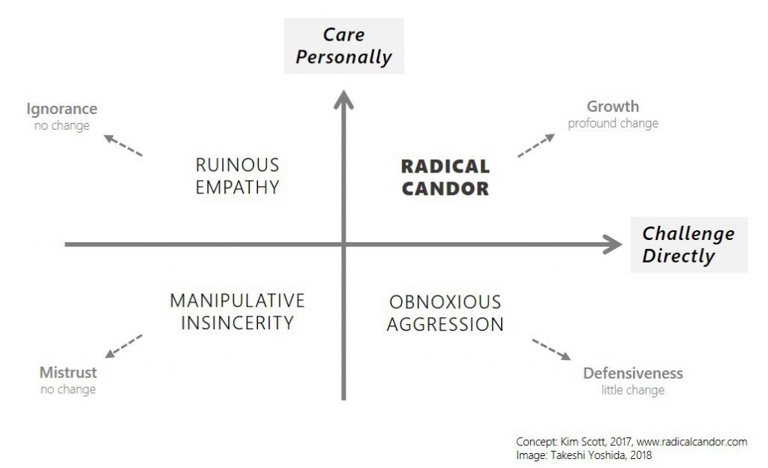
Avoid raising your voice or using sarcasm. 6. Be respectful.
For example, you might say “I noticed that you didn’t do your homework today. Criticism should be followed by praise or encouragement. Good job on doing your homework yesterday”. 7. Be supportive.
8. Avoid giving criticism that is not helpful. For example, instead of saying “you’re never going to amount to anything”, try “I noticed that you didn’t do your homework today. What can we do to help you succeed?”
For example, instead of saying “you’re always messing up”, try “I noticed that you made a mistake on your math homework today”. 9. Avoid giving criticism that is not specific.
For example, instead of saying “you’re always doing things wrong”, try “I noticed that you made a mistake on your math homework today. Let’s look at it together and see how we can fix it”. 10. Avoid giving criticism that is not objective.
Let Them Learn From Their Mistakes
As a parent, it’s your job to help them learn from those mistakes so they don’t make them again in the future. It’s important to remember that your teen is still learning and growing, and will make mistakes along the way.
This means that you point out what they did wrong, and then offer suggestions on how they can do it better next time. One way to do this is to give them constructive criticism.
Here are some tips on how to give your teen constructive criticism:
1. Be specific.
For example, instead of saying “you’re lazy,” try “I noticed that you didn’t put your laundry away this morning.” When you’re critiquing your teen’s behavior, it’s important to be specific.
2. Avoid using “you” statements.
When you’re critiquing your teen’s behavior, avoid using “you” statements. For example, instead of saying “you’re lazy,” try “I noticed that the laundry wasn’t put away this morning.”
3. Use “I” statements.
When you’re critiquing your teen’s behavior, use “I” statements. For example, instead of saying “you’re lazy,” try “I noticed that the laundry wasn’t put away this morning.”
4. Avoid using labels.
When you’re critiquing your teen’s behavior, avoid using labels. For example, instead of saying “you’re lazy,” try “I noticed that the laundry wasn’t put away this morning.”
5. Be respectful.
When you’re critiquing your teen’s behavior, be respectful. For example, instead of saying “you’re lazy,” try “I noticed that the laundry wasn’t put away this morning.”
6. Avoid using negative words.
For example, instead of saying “you’re lazy,” try “I noticed that the laundry wasn’t put away this morning.” When you’re critiquing your teen’s behavior, avoid using negative words.
7. Focus on the behavior, not the person.
For example, instead of saying “you’re lazy,” try “I noticed that the laundry wasn’t put away this morning.” When you’re critiquing your teen’s behavior, focus on the behavior, not the person.
8. Avoid making assumptions.

For example, instead of saying “you’re lazy,” try “I noticed that the laundry wasn’t put away this morning.” When you’re critiquing your teen’s behavior, avoid making assumptions.
9. Use “I” statements.
When you’re critiquing your teen’s behavior, use “I” statements. For example, instead of saying “you’re lazy,” try “I noticed that the laundry wasn’t put away this morning.”
10. Be brief.
For example, instead of saying “you’re lazy,” try “I noticed that the laundry wasn’t put away this morning.” When you’re critiquing your teen’s behavior, be brief.
What Not To Do When Giving Constructive Criticism
Giving constructive criticism is an important skill to have, but it is also important to know what not to do when giving constructive criticism. Here are some things to avoid when critiquing a teen’s work:
Don’t Be Mean Or Overly Critical
Instead, try to be as positive and helpful as possible. This will only serve to make them defensive and less likely to listen to what you have to say. Thank them for their efforts and encourage them to keep up the good work. When giving constructive criticism to your teen, it is important to avoid being mean or overly critical. Explain what they did well and offer specific suggestions for improvement.
Don’t Lecture Them
Explain why you think this is important and ask for their input. This will only make them feel defensive and will likely cause them to tune you out. When it comes to giving your teen constructive criticism, avoid lecturing them. Instead, try to have a conversation with them about what they could improve on. If they are receptive, work together to come up with a plan to help them make the necessary changes.
Don’t Compare Them To Others
When giving constructive criticism to your teen, it is important not to compare them to others. Instead, focus on what they did that you would like to see improved and offer specific suggestions on how to do that. This will only make them feel bad about themselves and could cause them to shut down and not listen to what you have to say.
Don’t Say “I Told You So”
It is important to be respectful and understanding when critiquing your teen so that they will be more likely to listen to you and take your criticism to heart. When you are critiquing your teen, it is important to avoid sounding like you are gloating or trying to prove that you were right all along. Saying something like, “I told you so,” will only make your teen feel defensive and will not help them to see your point of view.
Key Takeaways
You want to help them improve, but you don’t want to hurt their feelings or make them feel like they’re not good enough. It can be difficult to know how to give your teen constructive criticism. Here are some key takeaways to keep in mind when giving your teen constructive criticism:
It’s important to focus on what they did wrong, not on who they are as a person. What can we do to help you remember to do them next time?” For example, instead of saying “you’re so lazy,” try “I noticed that you didn’t do the dishes like you said you would. 1. Critique their behavior, not their character.
This will just make your teen feel defensive and like you’re attacking them. Instead, try using “I” statements, such as “I noticed that you didn’t do your homework today. 2. Avoid using “you” statements. Can you tell me what happened?” For example, don’t say “you’re always forgetting to do your homework.”
For example, instead of saying “you need to be more responsible,” try “I noticed that you didn’t turn in your science project on time. Vague criticism will just confuse your teen and won’t be helpful. 3. Be specific. What can we do to make sure that you turn it in on time next time?”
For example, don’t call your teen “lazy” or “stupid.” 4. Avoid using labels. This will just make them feel bad about themselves and won’t be helpful.
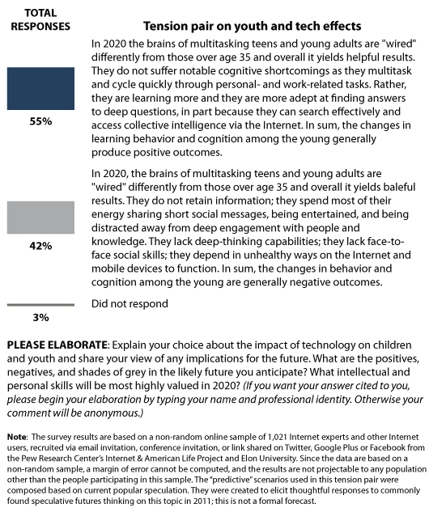
Let your teen know that you’re on their side and that you want to help them improve. For example, you could say “I know that you’re capable of doing great things. I’m here to help you, so let me know if you need any help.” 5. Be supportive.
For example, don’t say “your sister always remembers to do her homework, why can’t you be more like her?” This will just make your teen feel bad and won’t be helpful. 6. Avoid making comparisons.
For example, if your teen doesn’t immediately start doing their homework after you talk to them, don’t get angry. Just remind them gently and be supportive. It takes time for people to change their behavior, so don’t expect instant results. 7. Be patient.
8. Follow up. After you give your teen constructive criticism, follow up with them to see how they’re doing. This will show them that you’re interested in their progress and that you care about their success.
Frequently Asked Questions
1.What is the best way to give your teen constructive criticism?
The best way to give your teen constructive criticism is to avoid being critical. Try to focus on the positive aspects of their behavior and what they can do to improve.
2.How can you avoid being critical?
You can avoid being critical by focusing on the positive aspects of their behavior and what they can do to improve. Try to avoid using words like “never” or “always.”
3.What are some positive aspects of their behavior?
Some positive aspects of their behavior may include effort, attitude, or improvement.
4.What should you do if you are critical?
If you are critical, try to avoid using words like “never” or “always.” Instead, focus on what they can do to improve.
5.What are some things they can do to improve?
Some things they can do to improve may include studying more, practicing more, or asking for help.
Final thoughts
It is important to be respectful and considerate when giving criticism to your teen. Try to avoid using negative words, and instead focus on what could be improved. It is also helpful to give criticism in a constructive way, such as offering specific suggestions on how to improve. Finally, be sure to praise your teen when they do something well.